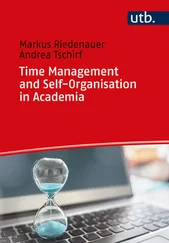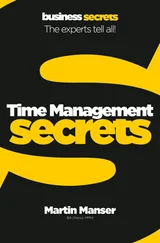Thomas Limoncelli - Time Management for System Administrators
Здесь есть возможность читать онлайн «Thomas Limoncelli - Time Management for System Administrators» весь текст электронной книги совершенно бесплатно (целиком полную версию без сокращений). В некоторых случаях можно слушать аудио, скачать через торрент в формате fb2 и присутствует краткое содержание. Жанр: Старинная литература, на английском языке. Описание произведения, (предисловие) а так же отзывы посетителей доступны на портале библиотеки ЛибКат.
- Название:Time Management for System Administrators
- Автор:
- Жанр:
- Год:неизвестен
- ISBN:нет данных
- Рейтинг книги:4 / 5. Голосов: 1
-
Избранное:Добавить в избранное
- Отзывы:
-
Ваша оценка:
- 80
- 1
- 2
- 3
- 4
- 5
Time Management for System Administrators: краткое содержание, описание и аннотация
Предлагаем к чтению аннотацию, описание, краткое содержание или предисловие (зависит от того, что написал сам автор книги «Time Management for System Administrators»). Если вы не нашли необходимую информацию о книге — напишите в комментариях, мы постараемся отыскать её.
Time Management for System Administrators — читать онлайн бесплатно полную книгу (весь текст) целиком
Ниже представлен текст книги, разбитый по страницам. Система сохранения места последней прочитанной страницы, позволяет с удобством читать онлайн бесплатно книгу «Time Management for System Administrators», без необходимости каждый раз заново искать на чём Вы остановились. Поставьте закладку, и сможете в любой момент перейти на страницу, на которой закончили чтение.
Интервал:
Закладка:
Develop Routines and Stick with Them
A good software developer tries to be lazy: if a bit of code works, he reuses it as often as possible. I write a lot of Perl code. People think I'm a Perl expert. The reality is that I know about 10 really good Perl idioms, and I reuse them over and over. Rarely is a program truly written from scratch. You're going to manage your time the same way. You're going to turn regular activity into routines so you spend less time planning things that are going to happen anyway.
I used to spend hours each week playing phone tag to figure out when I could talk with my boss. Now we meet at the same time every week for a brief status meeting. No more guessing. It's a routine we have. Establishing this routine saves us both time and reduces the "thinking" we have to do each week.
To make sure that I don't spend a lot of time managing all my time management techniques, I work them into a routine, too. At the start of the day, before I've even checked my email, I review my to do list and set priorities for the day.
It's important to stick with your routines because other people start to count on them. That helps them plan their days. Everyone is helped.
Develop Habits and Mantras
Habits are routines you do without having to think. Mantras are mental triggers for rules of thumb.
I refill my gas tank every Sunday. It's a good habit. Sometimes I can't even remember why I do it, but I trust the habit and use it. Ah! That's right! It all started because I was often late for work on Monday morning and didn't want to be more late because I had to stop to fill my tank. Now it's a habit. Unless my tank is completely full, I always fill my tank on Sunday.
Rules of thumb are like habits that don't happen regularly. They are ways to mentally record responses that are generally good for particular situations. When I activate a rule of thumb, I have a mantra, or saying, that goes along with it. For small tasks that I'm likely to procrastinate on, my mantra is:
Sooner is better than later.
For example, I once had to periodically empty the water-collection bucket on a portable air-conditioning unit in a small computer closet. (Yes, in the long term, the better solution is to install a drain pipe or to use a cooler that evaporates the water into the exhaust. This was a temporary solution.) The bucket had two levels--"Time to empty the bucket," and "You idiot, you should have emptied it already." It could take a week before the water level reached the first mark, which gave me a good excuse to ignore the bucket for days at a time. This caused three problems. First, emptying the bucket when it was very full was much more difficult than emptying it when it was fairly full—splish-splash. Second, as luck would have it, most times I noticed that the water level was too high to ignore, it always seemed to be at the end of the day when I had to be somewhere after work. Now I would be late because I had to spend 15 minutes emptying the water. Third and most important, I ran the constant risk of overflowing the bucket. Though a detector on the unit automatically shut off the air-conditioning before the bucket overflowed, this fail-safe could result in a room temperature hot enough to fry all the computers.
As you can guess, all of this was improved when I employed my "Sooner is better than later" mantra. The first time I noticed the water level above the first mark, I said to myself, "Sooner is better than later" and emptied the bucket. Problem solved. This mantra is closely related to the adage, "A stitch in time saves nine."
Eventually habits and mantras become second nature. Developing habits and mantras are investments we make so that our brain isn't cluttered in the long run. When they become second nature, they stay out of the way of our usual thoughts and thus don't risk violating our principle to conserve RAM.
Here's another mantra that has served me well:
Trust the process.
In a few chapters, I'll recommend spending five minutes each morning planning your day. Ironically, it is the hectic days when you are most tempted to skip the five minutes of planning, yet it is those days that planning is most beneficial. I say to myself, "Trust the process," and do the planning. I'm always glad I did.
When your brain is full of negative or toxic thoughts such as, "I'll do it later," or "I'm too busy to stop for five minutes to plan my day," a mantra has the power to fill your brain with a positive thought, squeezing out the negativity. If you can act during the fleeting moment that the mantra fills your brain, you'll be taking positive action before the negative thought can return.
That's a really important point. You can train yourself to fake out your brain!
Maintain Focus During "Project Time"
Earlier in this chapter I talked about the importance of managing interruptions. That's all part of maintaining focus . Interruptions are the natural enemy of focus. You'll learn to use your organizer and other techniques to maintain focus.
Distractions are so, um, distracting! Think about how an operating system works. When time-critical operations need to be done, the kernel locks out all other tasks and works on exactly one task until that task is complete. For example, when memory is being allocated to a task, the kernel locks out all other memory-table access so that this one happens correctly, without multiple processes all trying to modify the allocation tables at the same time. As an SA, you want the same kind of laser focus when you're working.
Operating system designers go to great lengths to make sure that a process can return from an interruption quickly (especially the constant swapping between processes in a multitasking operating system). They do this because they know that time spent returning from an interruption is wasted time and should be minimized. You should do the same.
Manage Your Social Life with the Same Tools You Use for Your Work Life
Last but not least, don't forget to have fun. The same tools we use to make sure there's enough time for our important projects at work can be used to make sure we don't miss out on the social life and family life that we want to have.
No one's dying thought is, "Gosh, I wish I had spent more time at the office."
By using the same tools for organizing your work and non-work life, you increase the practice you get at using these techniques! The more practice, the faster you develop better organization habits. You are also leveraging some good, proven techniques rather than reinventing the wheel.
This isn't to say that your social life will become structured and scheduled down to the minute. There's nothing wrong with scheduling an evening of goofing off!
It Won't Be Easy
I'm told that when teaching, it's better to tell people how difficult it's going to be early in the process so that they aren't so disappointed when they realize it isn't all milk and honey (or Jolt and chocolate). I'm told that it's a lot better than promising people "easy, fast results" and having them give up at the first challenge, possibly blaming themselves for not achieving the instant results promised.
Therefore, let me be perfectly clear: this may be the most difficult journey on which you've ever embarked. You've spent your entire life developing the bad time management habits you have right now; you can't fight that inertia over night. It's going to take long hours of practice. You are going to stumble through a lot of this, come back a month later, reread a chapter, and realize that you've been doing it wrong. At times it will seem like there is no hope, that these techniques are a waste of time and more difficult than just muddling though the old way.
I can assure you that you'll have all these feelings because I felt them all, too.
Читать дальшеИнтервал:
Закладка:
Похожие книги на «Time Management for System Administrators»
Представляем Вашему вниманию похожие книги на «Time Management for System Administrators» списком для выбора. Мы отобрали схожую по названию и смыслу литературу в надежде предоставить читателям больше вариантов отыскать новые, интересные, ещё непрочитанные произведения.
Обсуждение, отзывы о книге «Time Management for System Administrators» и просто собственные мнения читателей. Оставьте ваши комментарии, напишите, что Вы думаете о произведении, его смысле или главных героях. Укажите что конкретно понравилось, а что нет, и почему Вы так считаете.












